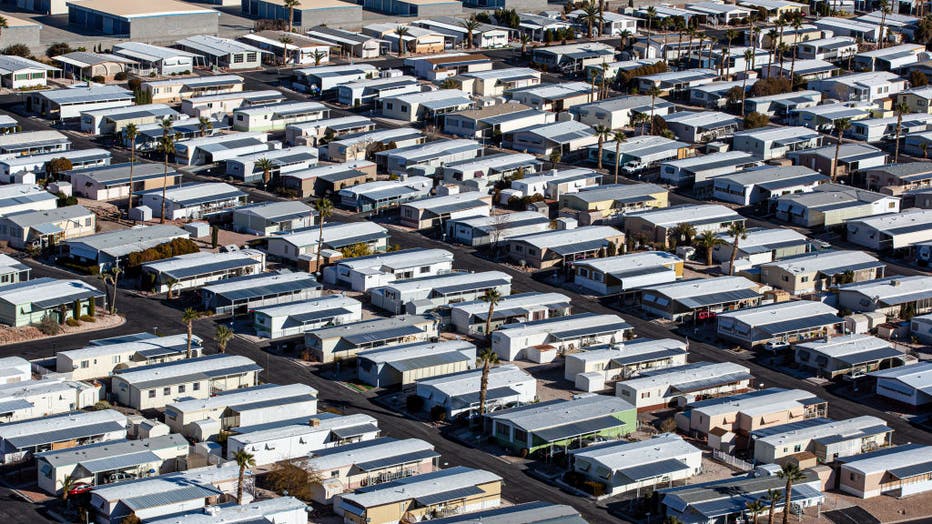How manufactured homes could solve the housing crisis
How to solve the housing crisis
A lot of folks want to own a home, but it seems like they have been locked out of the market. FOX 5 real estate expert John Adams has an idea of what can we do to solve this housing crisis.
Just over one-third of households in this country rent the home in which they live. And as many as nine out of 10 renters say they hope to one day own their own home.
But in the past few years, home prices have soared, and loan rates have more than doubled.
So, how do we solve this housing crisis? FOX 5 real estate expert John Adams says he has the answer.
The median price for a new home in Georgia is $351,000, according to research by Houseo, up more than 6% from a year ago. Under typical conventional financing, a buyer would need a down payment of more than $70,000 and then be prepared to cough up a monthly mortgage payment of about $2,500 per month including taxes and insurance.
We are looking at a real problem for the typical Georgia family, and the problem is worse for low to moderate-income renters hoping to own.
What Adams would propose is a radical shift in the way we build starter homes in this country.
He thinks most of us agree that homeownership is a good thing for our country. It forces us to begin directly supporting our schools, our libraries, our hospitals and our local governments. It makes better citizens because homeowners now have a stake in their own community.
In addition, homeownership is the primary means of wealth accumulation in America today. The net worth of the average homeowner is some 40 times that of the average renter.
We are on a course to becoming a nation of haves and have-nots when it comes to real estate. And that is not a good outcome for anyone.

A mobile home park in the small community of Boulder City is viewed on January 11, 2022 in Boulder City, Nevada. (Photo by George Rose/Getty Images)
Here are three ideas that could change the trajectory of homeownership in America:
1. Government-mandated "first-time" FHA homebuyer loans that are designed to help renters make the jump to ownership. Small down payments, graduated monthly payments, and property tax rebates in the early years of ownership. These could all make ownership more affordable and possible for millions. Mandatory financial literacy would make the exercise sustainable.
2. Aggressive and affirmative marketing and education to all stakeholders of the benefits of manufactured housing, beginning with the fact that these homes are well-built to federal standards and that they qualify for the same financing as site-built homes, yet cost only half as much.
3. Legislation that would require every county in Georgia to set aside land that is zoned for single-family manufactured housing at a relatively high density.
Trailer parks are typically viewed as lower-income housing for occupants living at or below the poverty line who have low social status. That is simply no longer the case.
We continue to see zoning regulators push for a 1-acre minimum lot size and a prohibition against allowing for starter homes. In Adams' opinion, that’s just wrong.
NIMBY - or "Not in My Backyard" - opposition is usually based on misperceptions or misguided information based on rumors regarding a project’s impact on its surrounding area. Old memories of "trailer parks" die hard.
The truth is that almost all counties in Georgia have used zoning laws to severely restrict the creation of what we all remember as trailer parks. But today’s manufactured homes are nearly indistinguishable from site-built homes, yet they cost only half as much to build.
The savings come primarily from economies of scale and the elimination of waste in a computer-designed manufacturing environment that can operate 24/7 every day. Today’s manufactured homes are well-built, highly energy efficient, and designed to last a lifetime when properly maintained.
Adams' advice to renters is the next few years will be a critical time for those hoping to get off the rent train and become homeowners. Prices are not going to crash, and interest rates will not return to 3% again in your lifetime. Find out what your options are, learn about manufactured housing, and take action now to secure your financial future.
Atlanta native John Adams has been a real estate broker and investor in residential real estate for the past four decades.

